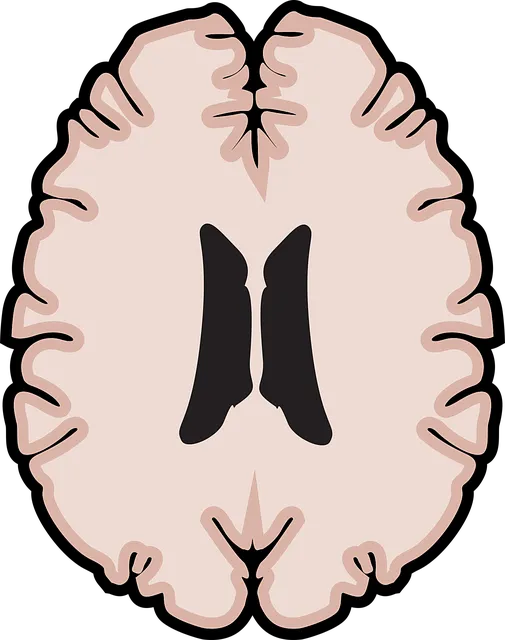Wheat Ridge Kaiser Permanente leverages advanced data analytics to understand trends in its mental health services number, including diagnoses and treatment participation. This insights-driven approach identifies gaps in care and cultural sensitivities, enabling the development of personalized interventions like stress reduction methods and emotional regulation techniques. By analyzing demographics, diagnosis codes, and progress notes, they tailor services for diverse populations, enhancing program effectiveness and improving overall mental health outcomes in the community. This data-centered strategy guides evidence-based practices, optimizes patient engagement, and ensures Wheat Ridge Kaiser Permanente's leadership in revolutionizing mental healthcare.
Mental health data analysis is a powerful tool for understanding and improving patient outcomes. In this comprehensive guide, we explore the intricate process of analyzing and interpreting data from Wheat Ridge’s Kaiser Permanente mental health services, a leading provider with a unique focus on community-based care. Through examining statistics and patient journeys, we uncover insights that drive service improvements. From understanding diverse mental health needs to implementing effective analysis techniques, this article delves into strategies that enhance the quality of care, specifically highlighting the Wheat Ridge location and its impact on patient outcomes, alongside Kaiser Permanente’s overall commitment to mental wellness.
- Understanding Mental Health Data: A Comprehensive Overview
- The Role of Kaiser Permanente in Mental Health Services
- Wheat Ridge Location: Statistics and Patient Outcomes
- Data Analysis Techniques for Mental Health Research
- Interpreting Results: Implications for Service Improvement
Understanding Mental Health Data: A Comprehensive Overview

Understanding mental health data is a multifaceted endeavor, especially when considering the complex nature of human emotions and behaviors. At Wheat Ridge Kaiser Permanente, mental health services play a pivotal role in supporting individuals navigating various psychological challenges. The first step in effective analysis involves gathering comprehensive data, which may include patient demographics, diagnosis codes, treatment plans, and progress notes. By utilizing sophisticated analytics tools, healthcare professionals can uncover insights into trends, patterns, and potential gaps in current service provision. This process is crucial for tailoring interventions to meet the diverse needs of patients.
The Cultural Sensitivity in Mental Healthcare Practice is a key consideration when interpreting data. Different cultural backgrounds shape individuals’ experiences and expressions of mental health issues. Understanding these nuances enables healthcare providers to employ appropriate Stress Reduction Methods and techniques for Emotional Regulation, ensuring culturally competent care. Through meticulous analysis, Wheat Ridge Kaiser Permanente can identify specific populations within its patient base that may require more specialized services, ultimately enhancing the overall quality of mental health care delivered.
The Role of Kaiser Permanente in Mental Health Services

Wheat Ridge Kaiser Permanente stands as a beacon of hope and healing in the realm of mental health services. This esteemed organization is renowned for its comprehensive approach, integrating cutting-edge care with innovative programs tailored to meet diverse patient needs. With a strong focus on accessibility, Kaiser Permanente ensures that the Wheat Ridge community has easy access to top-tier mental health professionals and specialized treatments.
Their portfolio includes a range of evidence-based initiatives such as Social Skills Training designed to empower individuals with effective coping mechanisms, and Mental Health Education Programs that foster awareness and resilience. Additionally, their dedicated team offers tailored support for mood management, demonstrating Kaiser Permanente’s holistic commitment to the well-being of its members. The network’s robust infrastructure and dedicated staff contribute significantly to improved mental health outcomes in the region.
Wheat Ridge Location: Statistics and Patient Outcomes

The Wheat Ridge location of Kaiser Permanente stands out for its comprehensive mental health services, which have been instrumental in improving patient outcomes. This facility leverages advanced data analysis techniques to understand and address the unique needs of its diverse patient population. By delving into statistical trends, healthcare professionals can identify patterns that highlight specific mental health challenges prevalent in the community, enabling targeted interventions. For instance, a close examination of the Wheat Ridge Kaiser Permanente mental health services number reveals fluctuations over time, indicative of changing prevalence rates for conditions like depression and anxiety disorders.
This data-driven approach not only aids in tracking progress but also guides the implementation of evidence-based practices. Strategies such as Inner Strength Development, Risk Assessment for Mental Health Professionals, and Empathy Building Strategies are integrated into care plans based on these analyses. As a result, patients benefit from personalized treatment plans that foster resilience and improve overall well-being, demonstrating the facility’s commitment to revolutionizing mental healthcare through both innovative services and insightful data interpretation.
Data Analysis Techniques for Mental Health Research

Mental health researchers employ a multitude of data analysis techniques to unravel complex psychological phenomena and guide evidence-based practices. These methods range from traditional statistical analyses, such as regression models and factor analysis, to cutting-edge machine learning algorithms designed to identify intricate patterns within large datasets. By utilizing these tools effectively, researchers at institutions like Wheat Ridge Kaiser Permanente can gain valuable insights into mental health services utilization and patient outcomes. For instance, analyzing trends in the number of patients seeking help for anxiety disorders or participating in resilience-building workshops through the organization’s mental health services number can offer crucial information on community needs and program effectiveness.
Furthermore, these analytical approaches enable comparisons between different populations, treatment modalities, and interventions, facilitating the development of tailored strategies for stress management. For example, by examining data from various demographic groups, researchers can identify specific barriers or facilitators to accessing mental health services, leading to more inclusive and accessible programs. This comprehensive analysis not only contributes to the body of knowledge on anxiety relief and stress management but also guides the design and implementation of effective interventions that foster resilience in diverse communities.
Interpreting Results: Implications for Service Improvement

When analyzing mental health data from Wheat Ridge Kaiser Permanente services, the results hold significant implications for service improvement. By understanding trends and patterns within the data, healthcare providers can identify areas where adjustments are needed to better meet patients’ needs. For instance, if the analysis reveals a high number of no-show appointments for anxiety-related issues, this could indicate a need for enhanced coping skills development programs or empathy-building strategies to improve patient engagement.
Similarly, mental health awareness campaigns targeted at specific demographics could be tailored and optimized based on data insights. Such interventions can lead to improved patient outcomes and satisfaction, ultimately enhancing the overall quality of Wheat Ridge Kaiser Permanente’s mental health services. This iterative process ensures that services remain relevant, accessible, and effective in addressing the evolving needs of the patient population.
Mental health data analysis plays a pivotal role in understanding patient outcomes and improving services, as demonstrated by Wheat Ridge’s Kaiser Permanente location. By employing advanced statistical techniques, researchers can uncover valuable insights from patient records, leading to more effective treatment strategies. The case study of Wheat Ridge highlights the success of Kaiser Permanente’s mental health services, achieving notable improvements through data-driven decision-making. This approach ensures that resources are allocated efficiently, catering to the unique needs of patients and fostering better overall mental well-being within the community.






